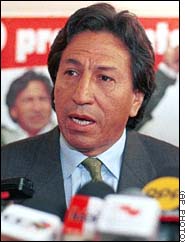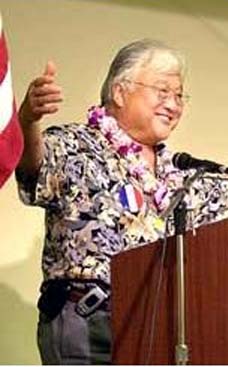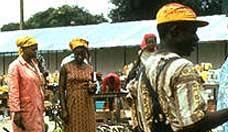
Today, as Mr Toledo gives his final state of the nation address and enters his last year of office, his greatest achievements may be his political survival - and that of Peru's weak democracy - in the face of regional instability, growing social unrest and his own deep unpopularity. President Alejandro Toledo of Peru was a language instructor for the Peace Corps in the 1960's.
Peru's poor remain poor as unpopular president enters his last year of office
Peru's poor remain poor as unpopular president enters his last year of office
By Hal Weitzman
Published: July 28 2005 03:00 | Last updated: July 28 2005 03:00
Four years ago, at Machu Picchu, the stunning Incan fortress in Peru's southern sierra, the nation welcomed a new leader.
Shamans offered llama fat and coca leaves to Pachamama, the Earth Mother, and musicians in traditional highland dress played panpipes and flutes.
Throughout it all, Alejandro Toledo grasped a golden battle-axe topped with an ear of corn - a sceptre used by the rulers of the pre-Columbian empire.
And so Mr Toledo began his term as president of Peru with a flourish - and with promises to wage a war on poverty.
Taking over an economy that had shrunk in the first five months of 2001, and a country that was reeling from revelations about the institutional corruption that toppled the 10-year-old regime of Alberto Fujimori, was such a daunting task that many thought the former World Bank economist would not last.
Today, as Mr Toledo gives his final state of the nation address and enters his last year of office, his greatest achievements may be his political survival - and that of Peru's weak democracy - in the face of regional instability, growing social unrest and his own deep unpopularity.
"[Mr Toledo] had approval of 59 per cent in July 2001," says Luis Benavente, of the Public Opinion Group at the University of Lima. "A year later, it was at 18.8 per cent." The following year it sank to 11 per cent and has been in similar territory ever since.
This reflects in large part Mr Toledo's own shortcomings. By failing to deliver on overblown promises, awarding himself a large salary increase early on, and being caught out lying about having had an illegitimate daughter, he has developed a reputation for untrustworthiness.
Corruption scandals and the rabid gossip-mongering of a salacious press have added to his woes.
But while Peruvians have tired of the constant stream of allegations, accusations and downright fabrications that are the substance of much of their journalism and politics, in the eyes of the world Peru has conjured up a different narrative.
Under Mr Toledo's watch, the country has experienced 47 consecutive months of gross domestic product growth, while the government is confidently predicting growth of 4.8 per cent for this year and next, and 5 per cent in 2007 and 2008. Exports are booming, inflation is low and polls show increasing consumer confidence.
This month Standard & Poor's, the ratings agency, raised its outlook on Peru from "stable" to "positive". It gives the Andean country a long-term local currency rating of BB+, one notch below investment grade.
However, many analysts question to what extent the credit for this can go to Mr Toledo. Peru, a large producer of minerals, would have had to be seriously mismanaged not to benefit from high commodity prices. And Pedro Pablo Kuczynski, the finance minister and a paragon of fiscal orthodoxy, is largely responsible for reining in public spending.
Moreover, Mr Toledo's vows at Machu Picchu related more to improving the wretched daily lives of impoverished indigenous communities that had suffered most during the government's long and violent struggle against the Maoist Shining Path guerrillas in the 1980s and 1990s.
He has ceaselessly reiterated his commitment to fighting poverty, yet no progress has been made in reducing from 54 per cent the proportion of Peruvians who live on less than $2 (€1.66, £1.15) a day.
Other factors in Mr Toledo's favour have been the weakness of Peru's left and social movements, the desire for stability after the turmoil of the Fujimori period, and the lack of any popular alternative.
Those lining up to contest the presidency in the first round of voting next April are familiar faces that do not excite most Peruvians.
They are led by two candidates who lost to Mr Toledo last time: former president Alan Garcia, whose record of economic mismanagement is still remembered, and the slightly more conservative Lourdes Flores, who would be Peru's first woman president.
Whoever wins, Peruvians will be expecting from their next president tangible changes to their daily lives rather than mere symbolism.











